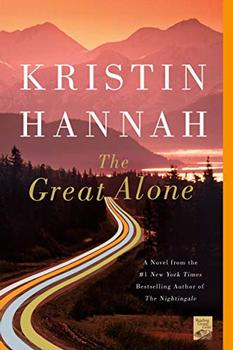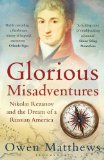Summary | Excerpt | Reviews | Beyond the book | Read-Alikes | Genres & Themes | Author Bio

When I was a preteen, I devoured all the survival stories I could get my hands on – from Gary Paulsen's Hatchet to Theodore Taylor's The Cay, Scott O'Dell's Island of the Blue Dolphins, and Jean Craighead George's The Talking Earth, among many others. So when I began reading Brian Payton's The Wind Is Not a River, I could tell immediately that it would be a worthy addition to this genre (although obviously written for more mature readers). Payton's novel will also appeal to fans of love stories.
Like any good survival tale, The Wind Is Not a River starts with a disaster—in this case, a wartime plane crash. Journalist John Easley finds himself on the Aleutian island of Attu in April 1943, just after the small plane he was on was shot down by the Japanese. Unbeknownst to nearly everyone back home in Seattle, John was on a secret mission to investigate the 1942 Japanese attack and subsequent occupation of the Aleutians, a story virtually unknown to the American public because it had been largely censored by the U.S. military. John and his sole traveling companion, a young Navy man named Karl, are ill-prepared to survive in the harsh Alaskan environment even if it is April and relatively mild by subarctic standards.
Meanwhile, back home in Seattle, John's wife Helen has become increasingly anxious about her husband's disappearance. The two of them have recently had a major argument—she wanted him to devote more energy to making a home and starting a family, while he felt compelled to pursue his plans; and John left home without giving Helen concrete idea of his whereabouts or his plans. Convinced that her husband is in danger, Helen sets out on her own journey (including a stint in the United Service Organization's entertainment corps) to find John and bring him home again.
The novel alternates between John's and Helen's points of view, gradually revealing more about these characters' personalities and history. We learn about the fate of John's beloved brother Warren, an airman for the Canadian military, whose death causes John, best known for his writing in National Geographic, to refashion himself as a war correspondent. We learn about what attracted the much-younger Helen to John (and vice versa) and about the surprising reserves of resourcefulness and talent neither one of them suspected she possesses.
The author Brian Payton, like John Easley, is a journalist who has written extensively about wilderness and the environment (his previous books include Shadow of the Bear: Travels in Vanishing Wilderness). It makes sense, then, that his writing about the bleakly beautiful Aleutian Islands should be particularly evocative and well-crafted: "Easley finds a ribbon of green near the edge of the beach where spring has come ashore." Even as he highlights the stark choices that characterize John's battle for survival, Payton shows himself to be equally adept at depicting Helen's gumption as she joins the USO under false pretenses in order to get close to her husband's destination.
The Wind Is Not a River will spark readers' interest in a remote part of the world and in this little-known chapter of World War II history even as it tells a memorable story about the power of love and the will to survive.
![]() This review was originally published in The BookBrowse Review in February 2014, and has been updated for the
September 2014 edition.
Click here to go to this issue.
This review was originally published in The BookBrowse Review in February 2014, and has been updated for the
September 2014 edition.
Click here to go to this issue.

If you liked The Wind Is Not a River, try these:

by Kristin Hannah
Published 2019
From the author of The Nightingale, comes a story of a family in crisis and a young girl struggling to survive at the edge of the world, in America's last true frontier.

by Owen Matthews
Published 2015
From the glittering court of Catherine the Great to the wilds of the New World, Matthews conjures a brilliantly original portrait of one of Russia's most eccentric Empire-builders.
Your guide toexceptional books
BookBrowse seeks out and recommends the best in contemporary fiction and nonfiction—books that not only engage and entertain but also deepen our understanding of ourselves and the world around us.